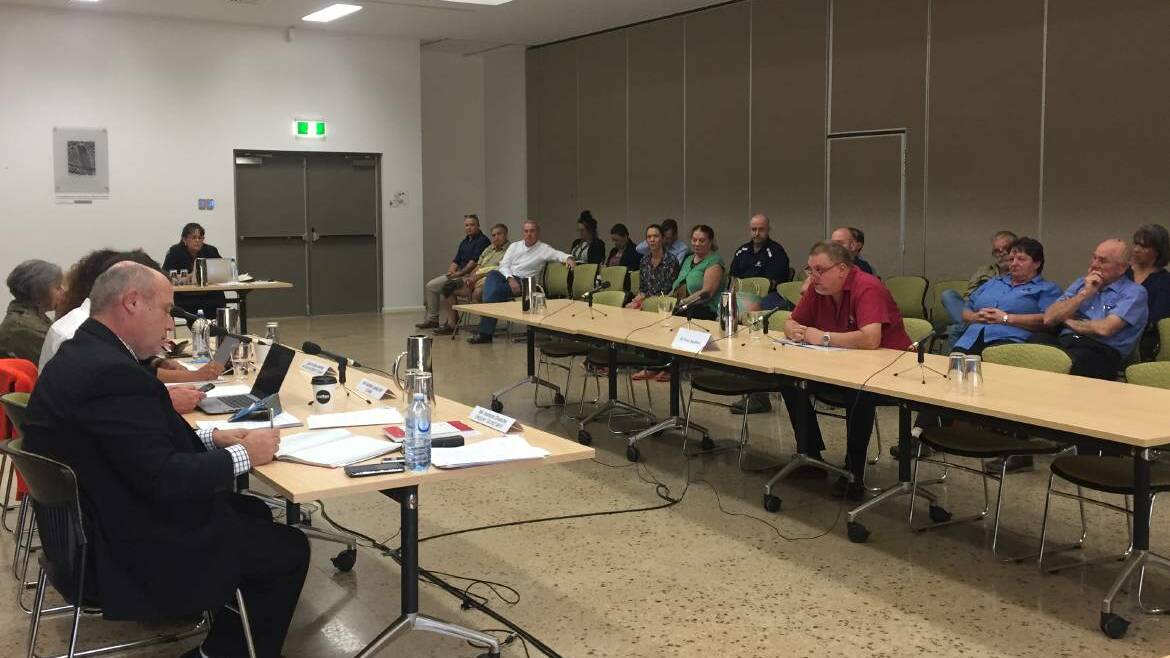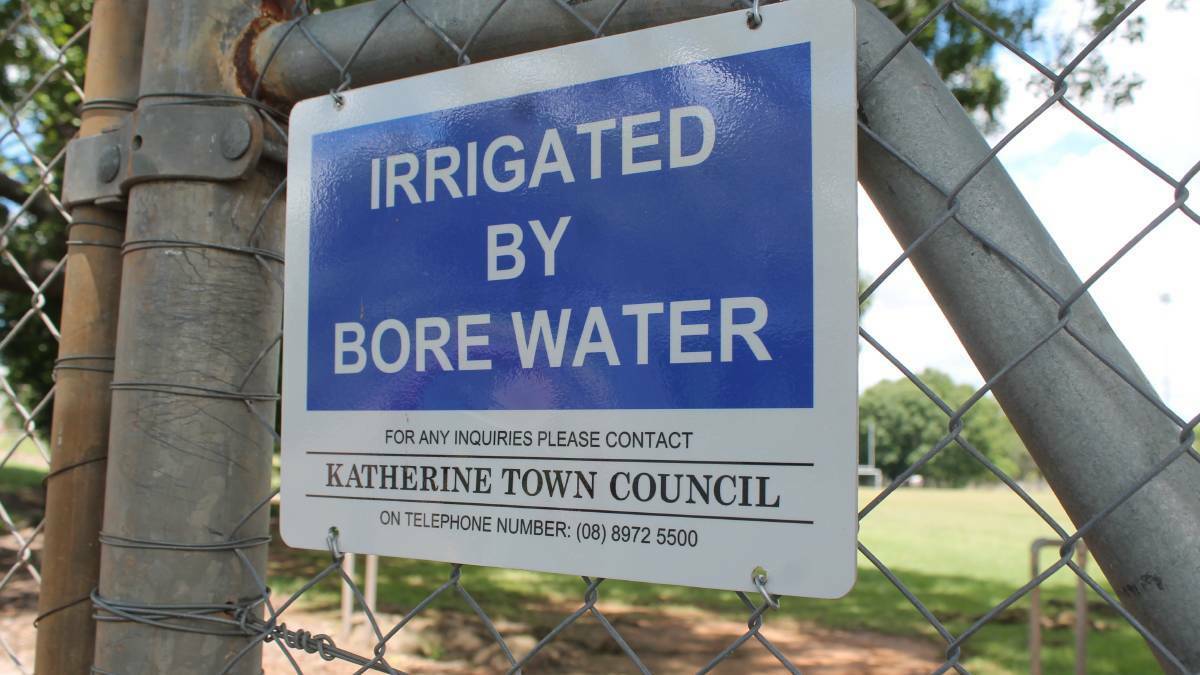
The Federal Government has been called on to start compensating landowners for PFAS contamination.
Subscribe now for unlimited access.
or signup to continue reading
Today’s key recommendation comes from a Joint Standing Committee inquiry which visited Katherine earlier this year.
The Government has steadfastly refused to consider compensation in the past which has led to court action for lost property value from contaminated towns including Katherine.
Of course with only weeks of parliamentary sittings left and a likely Federal election about mid next year, it will be again be a matter of politics on whether the recommendations will be accepted by a new government.
The Joint Standing Committee, the Inquiry into the management of PFAS contamination in and around Defence bases, offered this key advice:
The committee recommends that the Australian Government assist property owners and businesses in affected areas for demonstrated, quantifiable financial losses associated with PFAS contamination that has emanated from Defence bases. Priority for compensation, including the possibility of buy backs, should in the first instance be given to the most seriously affected residents, including:
- property owners who have suffered losses as a result of being unable to use their land for a specific purpose that it was intended for at the time of purchase;
- persons who invested in land between the time that it was known by the Australian Government to be contaminated and the time of that contamination being made public; and
- businesses and other owners of property in the most highly contaminated areas.
- The compensation scheme should be flexible enough to accommodate a variety of individual circumstances.
Acceptance of an offer for compensation in respect of their property’s utility or value should not preclude the person from a future claim in relation to any human health effects that may be found, as a result of future research, to be attributable to PFAS exposure.
Shine Lawyers have launched a class action on behalf of Katherine residents because of lost property values from PFAS contamination.
The committee also wants Defence removed from its lead role on responding to PFAS contamination issues as it did in Katherine last week.
The committee wants a “Coordinator-General” appointed to coordinate the Government effort “to ensure a clear and consistent approach to community consultations and to cooperation with state, territory and local governments”.
Committee chair Andrew Laming tabled the report today.
“On behalf of all the PFAS Sub-committee members, I would like to thank and pay tribute to the many members of PFAS affected communities across the country who made submissions to the inquiry and who appeared to give evidence at public and in-camera hearings,” Mr Laming said.
“The hearings at Katherine, Williamtown and Oakey were remarkable for the intensity of the emotion that could not be masked. These communities are hurt and angered by the effects PFAS contamination, and the delays and inadequacies in the response to its discovery, have had on their lives, their families and their communities.”
The report makes nine recommendations with a focus on improving the Government’s response to the PFAS contamination issue.
More reading:
The committee made recommendations on voluntary blood testing program and believed health experts needed to modify their messages.
“The Government review its existing advice in relation to the human health effects of PFAS exposure, including to acknowledge the potential links to certain medical conditions,” the committee recommended.
The committee said most of the submissions they received referred to Oakey. Williamtown or Tindal.
The use of likely contaminated bore water on sporting fields by Katherine Town Council worried the committee.
“During the inquiry, the committee noted varying practices regarding the extent of the use of contaminated bore water for irrigation purposes,” its report said.
“While all three sites visited by the committee had precautionary advice in place recommending against the drinking of bore water in the most affected areas, bore water is still being used by local government in at least one area (Katherine) for watering parks and sports fields, and there do not appear to be any restrictions placed on the use of private bores by state and territory regulatory authorities at any site.
“The committee recognises that any restrictions on the use of bore water would be a state and territory responsibility, and that the need for restrictions may vary from site to site.

“However, the committee was not assured that sufficient consideration has been given as to the extent to which unrestricted use of bore water is contributing to the spread of PFAS contamination to areas that would otherwise by unaffected. The lack of restrictions may also contribute to unanticipated exposure pathways, for example, by children playing under or even drinking from sprinklers. The committee recommends that this matter be given further consideration at a national level.”
On health advice, the committee said: “The health advice provided by Australian authorities emphasises that there is currently ‘no consistent evidence’ that PFAS exposure causes adverse human health effects. While this statement may be true, overseas jurisdictions appear to have been more ‘upfront’ in communicating the possible health effects of exposure to PFAS.
“This presents a confusing message to the Australian public and contributes to an impression amongst community members that the Australian Government is downplaying the risks in order to avoid taking responsibility for the contamination. Furthermore, while many uncertainties remain, it is not clear that the current advice takes into account evidence from international studies, including those reviewed by the Expert Health Panel, of potential links to certain medical conditions.”
The Federal Government today responded through Environment Minister Melissa Price and Assistant Defence Minister David Fawcett.
There was no discussion about compensation from the Government.
“The Government acknowledges that communities in areas where PFAS contamination has been detected are very concerned about how this may affect them,” the pair said.
“Their wellbeing is our focus and we will continue to work closely with them to provide advice and assistance as quickly as possible.
“The Government will carefully consider the Committee’s recommendations and provide a coordinated Whole-of-Australian-Government response ...”
The Coalition Against PFAS, which includes Katherine GP P.J. Spafford as an executive member, said today’s report vindicate contaminated communities in finding that both the Defence Department and Government not only lost control of managing PFAS contamination in Australia but in truth, never had any.
“We welcome the recommendations regarding long-overdue compensation. Our homes and businesses have been contaminated by chemicals, our health put at serious risk, the mental and financial toll has been immense.
“Contaminated communities are told not to drink water or eat food from their properties but the Government is dismissive of the international research detailing the health risks of PFAS.”
The committee’s deputy chair, Senator Malarndirri McCarthy said: “The Federal Government has the power to act on these recommendations now and they should be acting immediately.
“The Committee has spent the last 7 months speaking with families and communities affected by PFAS. A clear message we were given was about the need for a coordinated approach. People in Katherine were being told to go to several different Federal Departments to get the information they needed. This is why the role of the Coordinator General is so important.
“Federal Labor is strongly urging the Abbott- Turnbull- Morrison Government to stop talking about PFAS and take action now.”
While you're with us, you can now receive updates straight to your inbox each Friday at 6am from the Katherine Times. To make sure you're up to date with all the news, sign up here.

